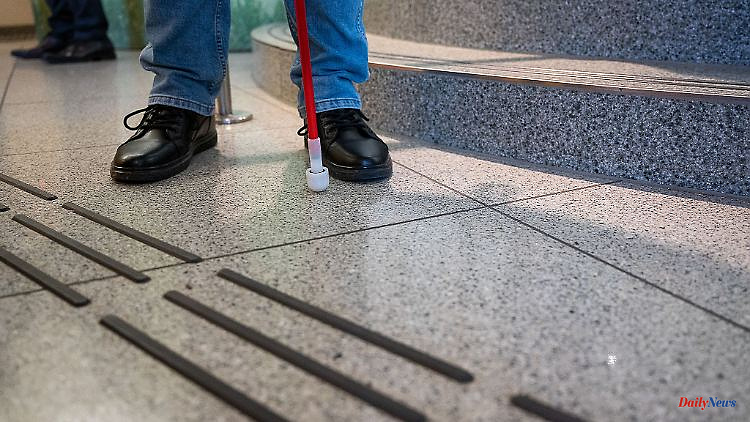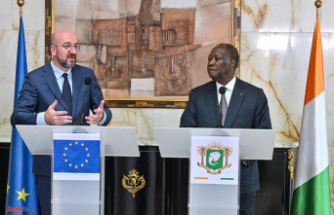Beautiful programs are one thing. But you also have to implement them. On the "International Day of People with Disabilities" on Saturday, associations are calling for real participation. And the country is setting an example.
Karlsruhe (dpa/lsw) - On the "International Day of People with Disabilities" this Saturday, associations and organizations called for the participation of people with disabilities and mental illnesses. "Participation means not only being there, but also helping to shape and influence," emphasized Annette Noller, senior church councilor, chairwoman of the Diakonisches Werk Württemberg.
It would be important for Diakonie that the Federal Participation Act in Baden-Württemberg finally had an effect. The implementation of the law, which is intended to significantly strengthen the rights of people with disabilities, is faltering. Because local self-government is blocking negotiations, Diakonie believes that the state must intervene.
Overall, from the point of view of the state association for people with physical and multiple disabilities, the situation for people with disabilities in the state is still difficult. The understanding of accessibility in museums is underdeveloped and has a lot of room for improvement. Many houses would try. Jutta Pagel-Steidl, the managing director of the association, regretted that only a small part actually implemented this. "In Baden-Württemberg, unfortunately, we are lagging behind when it comes to barrier-free and inclusive museums."
She added: "Accessibility is limited to being able to get into buildings and exhibition rooms with a wheelchair. But it's about people with disabilities being able to see an exhibition independently," says Pagel-Steidl.
The UN Convention on the Rights of Persons with Disabilities requires accessibility. From the point of view of the association, the action plan for implementing the convention in the country is not very ambitious with regard to cultural life and is not even remotely sufficient: "It's a tiny drop in the ocean."
A show in the State Museum of Natural History in Karlsruhe wants to do this better: The exhibition "From the Senses" (until September 10, 2023) also wants to give people with disabilities a museum experience for all their senses. Hearing, smelling and touching stations invite you to join in. The exhibition is wheelchair accessible, there are videos with sign language, texts in Braille, guided tours in simplified language and by touch, an app for the blind and visually impaired and a tactile floor guidance system.
Meanwhile, the country is setting an example on the "International Day of People with Disabilities": As Social Affairs Minister Manne Lucha (Greens) announced, a competence center for accessibility will be opened. In order to promote the equal participation of people with disabilities, the competence center is to provide advice on accessibility in the construction of public buildings and in traffic and mediate possible conflicts. People who have encountered an obstacle to access in communities, offices or courts, whether in the building or on the website of an authority, can contact the new arbitration board.
People with physical or mental disabilities are still disadvantaged in many areas of life. The "International Day of People with Disabilities" proclaimed by the United Nations has been drawing attention to this every year since 1992 on December 3rd.












